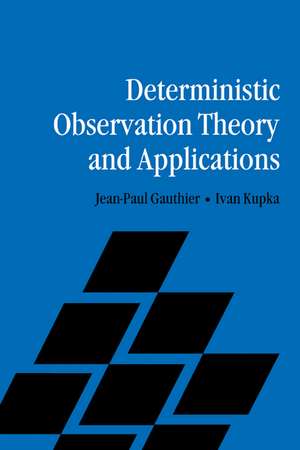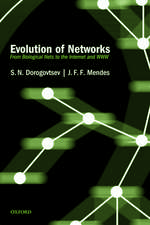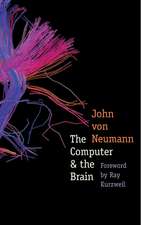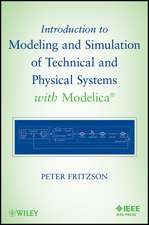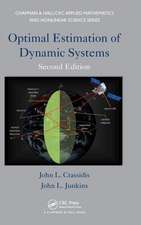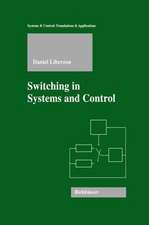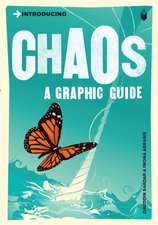Deterministic Observation Theory and Applications
Autor Jean-Paul Gauthier, Ivan Kupkaen Limba Engleză Paperback – 16 feb 2011
| Toate formatele și edițiile | Preț | Express |
|---|---|---|
| Paperback (1) | 314.99 lei 6-8 săpt. | |
| Cambridge University Press – 16 feb 2011 | 314.99 lei 6-8 săpt. | |
| Hardback (1) | 778.71 lei 6-8 săpt. | |
| Cambridge University Press – 7 oct 2001 | 778.71 lei 6-8 săpt. |
Preț: 314.99 lei
Nou
Puncte Express: 472
Preț estimativ în valută:
60.28€ • 64.45$ • 50.25£
60.28€ • 64.45$ • 50.25£
Carte tipărită la comandă
Livrare economică 18 aprilie-02 mai
Preluare comenzi: 021 569.72.76
Specificații
ISBN-13: 9780521183864
ISBN-10: 0521183863
Pagini: 238
Dimensiuni: 152 x 229 x 14 mm
Greutate: 0.35 kg
Editura: Cambridge University Press
Colecția Cambridge University Press
Locul publicării:New York, United States
ISBN-10: 0521183863
Pagini: 238
Dimensiuni: 152 x 229 x 14 mm
Greutate: 0.35 kg
Editura: Cambridge University Press
Colecția Cambridge University Press
Locul publicării:New York, United States
Cuprins
1. Introduction; Part I. Observability and Observers: 2. Observability concepts; 3. The case dy ≤ du; 4. The case of dy < du; 5. Singular state-output mappings; 6. Observers: the high-gain construction; Part II. Dynamic Output Stabilization and Applications: 7. Dynamic output stabilization; 8. Applications; 9. Appendix; 10. Solutions to the exercises of Part I; Bibliography; Index.
Recenzii
Review of the hardback: '… an extraordinary book, establishing a new paradigm in the observability theory of nonlinear systems.' Zentrallblatt MATH
Descriere
This 2001 book presents a general theory as well as a constructive methodology to solve 'observation problems'.
